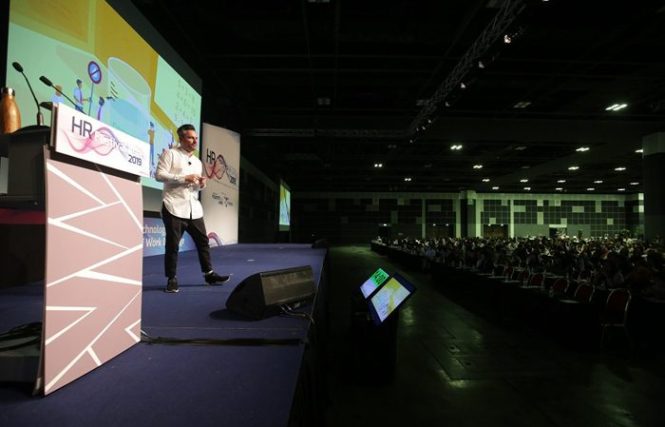Google’s chief innovation evangelist says true business transformation starts from the mindset of all employees.

 Evolution has taught us that negative bias is one of the key traits that have helped human beings to survive against the odds.
Evolution has taught us that negative bias is one of the key traits that have helped human beings to survive against the odds.
But this ability to “sense danger” and “see the glass half empty” alone are not going to further the next wave of human evolution, much more those of businesses. There is now evidence to suggest that the opposite is just as invaluable, particularly in the world of work.
Advertisement
Enter Google, where, as Chief Innovation Evangelist Dr. Frederik Pferdt (pictured) revealed in a session at HR Festival Asia, such a mindset shift has long been at the forefront of all its agendas.
The word “mindset” seems to imply that any change would be difficult, but that’s exactly what drives one of the world’s largest technology companies.
The company places a large emphasis on creating four main mindsets, namely to be: optimistic, curious, inclusive and empathetic, in all employees.
Relating his talk back to human evolution, Pferdt said that to truly advance into the future, “we should learn to adopt an optimistic mindset” and “start reprogramming our minds today.”
“We should reprogram our brains by changing our responses from ‘yes, but’ to ‘yes, and,’ ” he said. “These two magic words will help to spark optimism that will then fuel innovation.”
For leaders, this point is particularly important, as it is their job to create a safe environment for their teams to experiment freely.
“They will come back either to say their experiments worked or their experiments failed. Your only response should be: ‘Fantastic. What did you learn?’ ” Pferdt said.
Advertisement
An environment that encourages curious mindsets has also been another key ingredient in the evolution of Google, which started out as an internet search engine in the 1990s and is now a technology company covering all areas of life.
Pferdt says curious minds ask the wildest questions, which can create the biggest opportunities and inspire the greatest outcomes.
“Asking more ‘what if’ questions are key. For example, what if we can make AI learning more accessible and available?” said Pferdt. “These questions allow us to move into and look at the future positively.”


Recent Comments